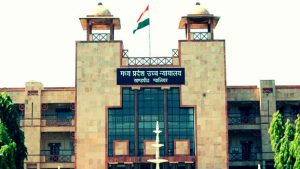 The Madhya Pradesh High Court in the PAPER TRADE LINKS THROUGH ITS PROPRIETOR SHRI SANDEEP BHARGAVA VERSUS UNION OF INDIA DEPARTMENT OF REVENUE MINISTRY OF FINANCE AND OTHERS vide Writ Petition No. 6061 of 2023 dated 10.07.2025, reinforces that cross-examination is not a discretionary privilege but a mandatory procedural right when adverse statements are relied upon. The denial of this right renders the adjudication procedurally defective and unenforceable in law, even if appellate remedies exist.
The Madhya Pradesh High Court in the PAPER TRADE LINKS THROUGH ITS PROPRIETOR SHRI SANDEEP BHARGAVA VERSUS UNION OF INDIA DEPARTMENT OF REVENUE MINISTRY OF FINANCE AND OTHERS vide Writ Petition No. 6061 of 2023 dated 10.07.2025, reinforces that cross-examination is not a discretionary privilege but a mandatory procedural right when adverse statements are relied upon. The denial of this right renders the adjudication procedurally defective and unenforceable in law, even if appellate remedies exist.
Facts of the Case: The petitioner was subjected to adjudication under the CGST Act, resulting in imposition of tax and penalty by the adjudicating authority. The adjudicating authority had relied substantially on the statements of witnesses recorded during the investigation to conclude that the petitioner was liable.
The petitioner sought cross-examination of these witnesses, asserting that their statements formed the basis of the tax demand. However, the request for cross-examination was denied on the grounds that the petitioner delayed the proceedings; and the witnesses gave statements voluntarily after understanding the implications under Section 70 of the CGST Act, and their statements “appeared to be correct.”
The petitioner contended that this denial violated the principles of natural justice, and cited the Supreme Court ruling in Ayaaubkhan Noorkhan Pathan v. State of Maharashtra & Ors., wherein it was held that cross-examination is integral to natural justice, particularly when adverse statements are relied upon.
The respondent authorities argued that the order was appealable and hence the writ petition was not maintainable.
Issue: Whether the denial of cross-examination to the petitioner of the witnesses relied upon in the adjudication order under the CGST Act violates principles of natural justice, and whether such denial vitiates the impugned order.
Held that: The Court held that the argument of the respondents that the writ petition is not maintainable due to availability of an appellate remedy was not acceptable, since the order suffers from a fundamental violation of natural justice.
Further, Cross-examination is a constitutional requirement when third-party statements are used against an assessee, especially when such statements are not made in the assessee’s presence, or the assessee disputes them.
Citing the Supreme Court’s judgment as referred by the petitioner, the Court herein emphasized that the opportunity to cross-examine witnesses is a fundamental component of fair hearing. Orders passed in violation of this right are liable to be set aside as being void for non-compliance with natural justice.
The rejection of cross-examination based on the “delay” or presumed correctness of the statements is not a valid reason under law.
The impugned order was set aside. The matter was remanded back to the adjudicating authority to resume proceedings from the stage of cross-examination, ensuring the petitioner is granted a fair opportunity to cross-examine the relevant witnesses.
To read the complete judgment 2025 Taxo.online 1490


